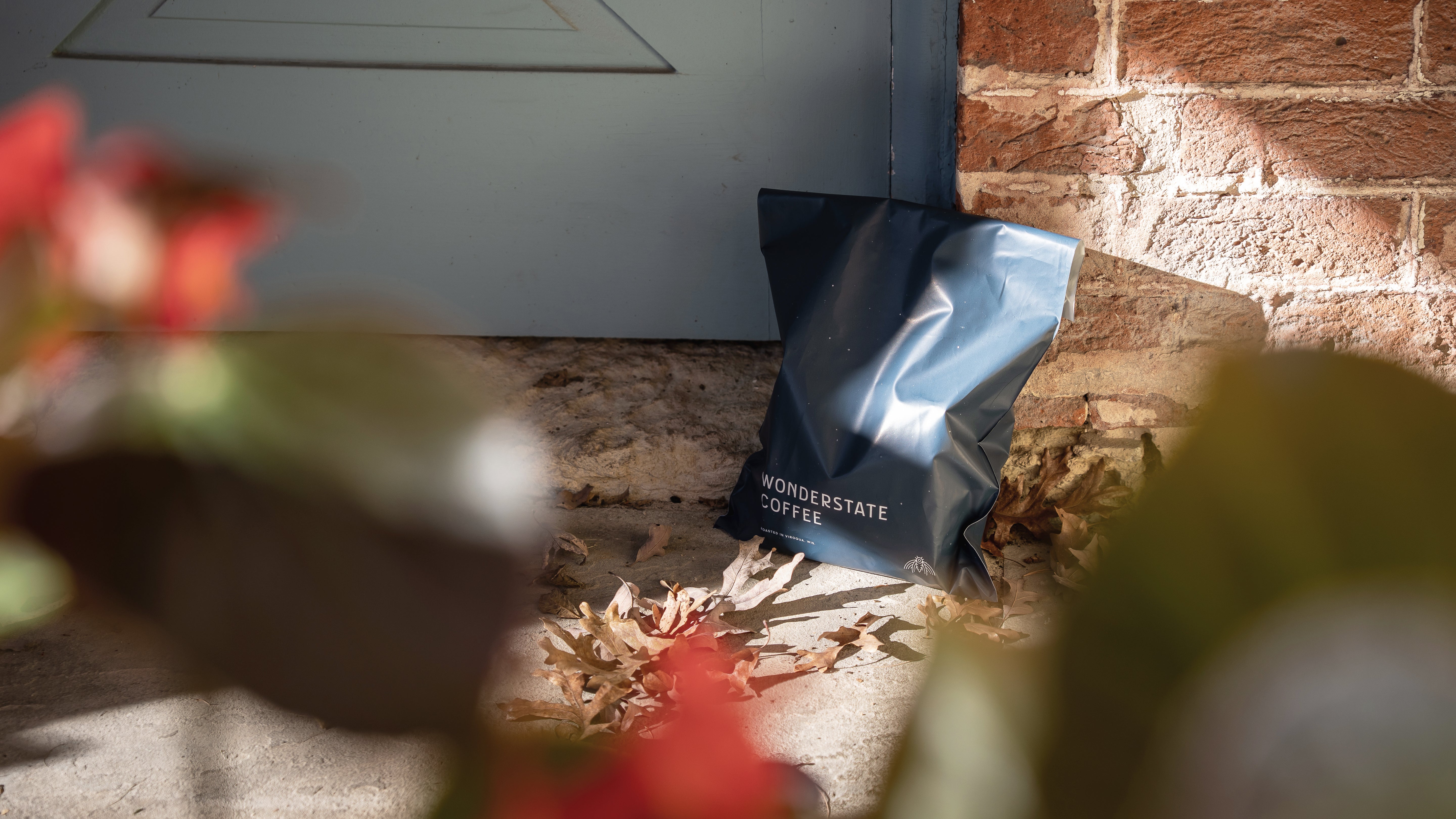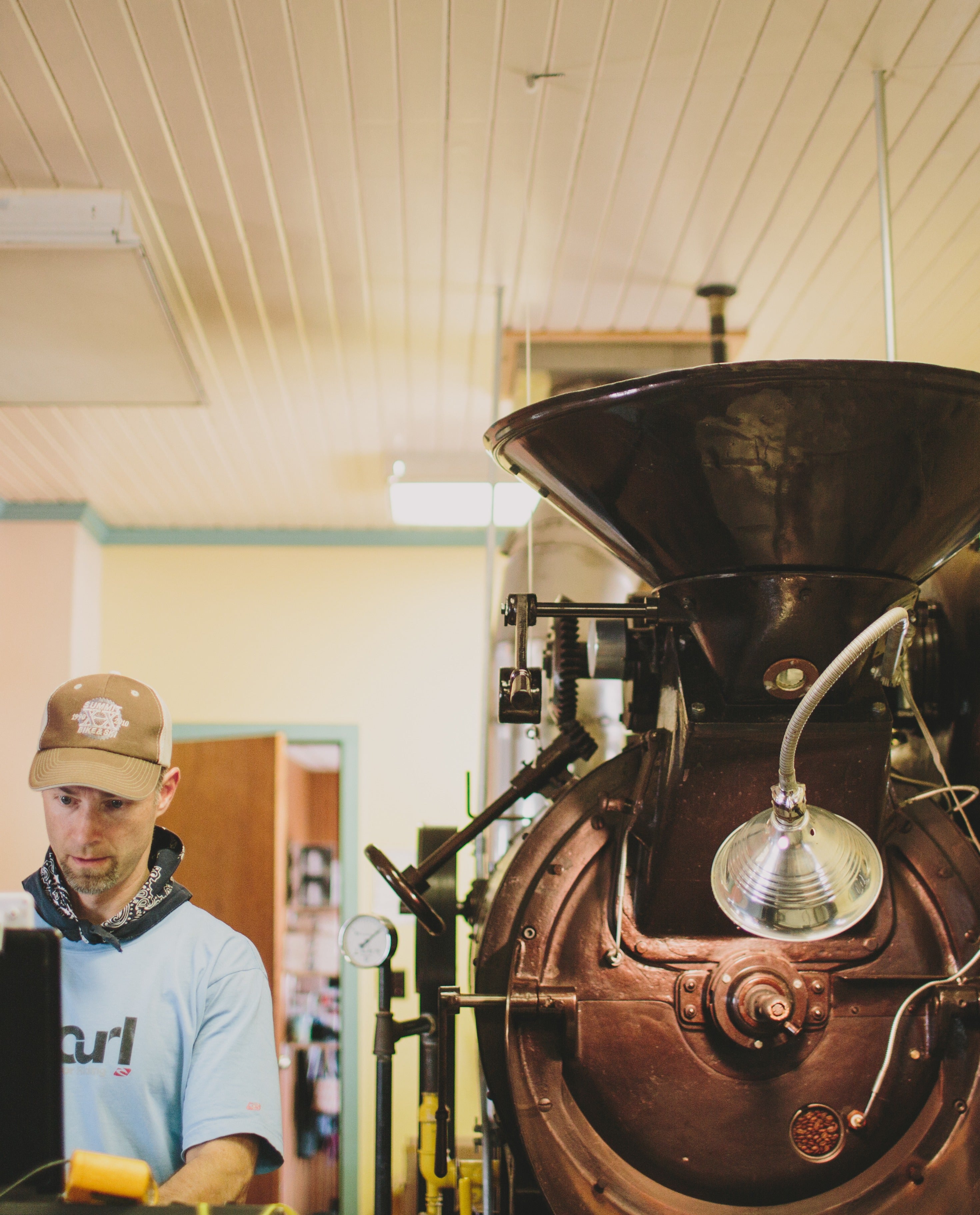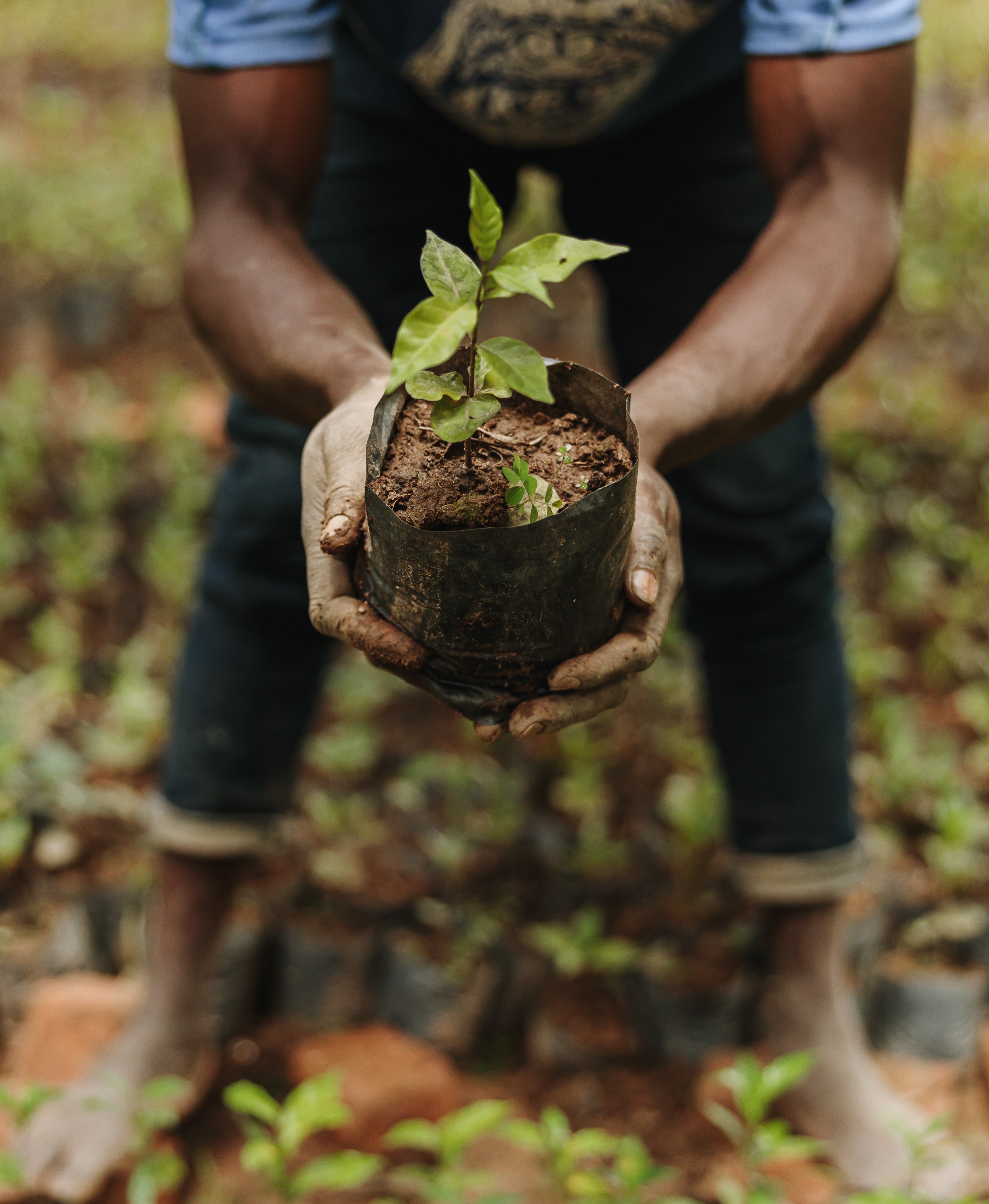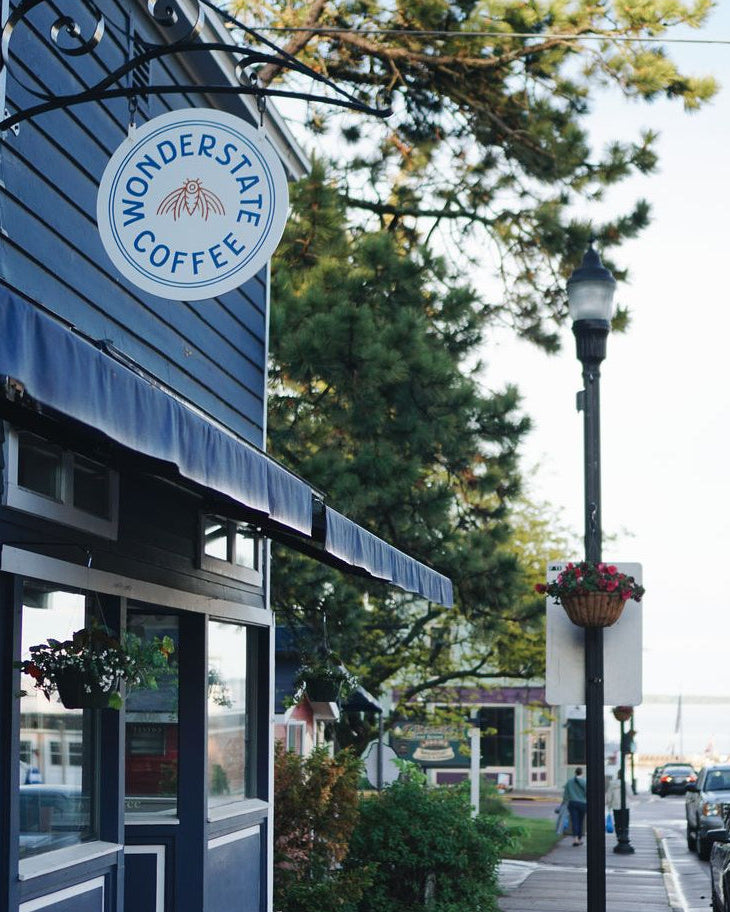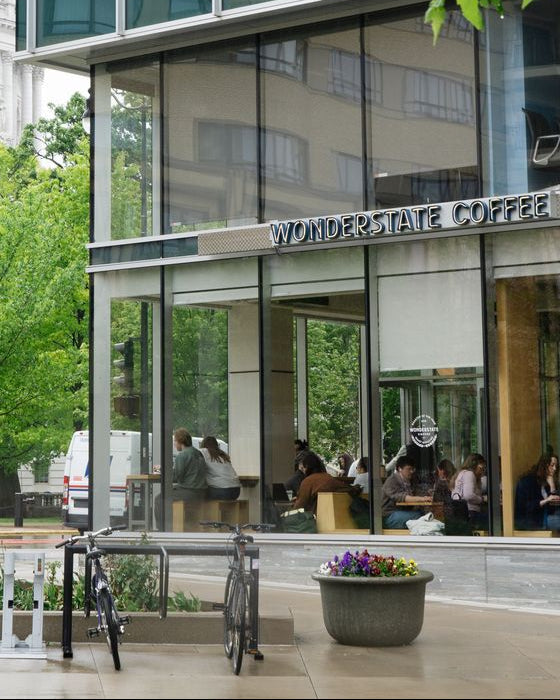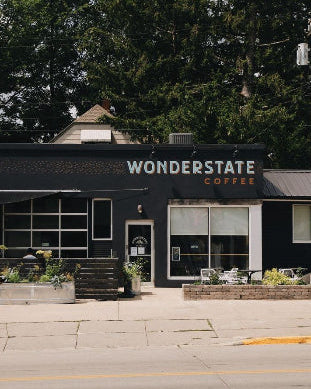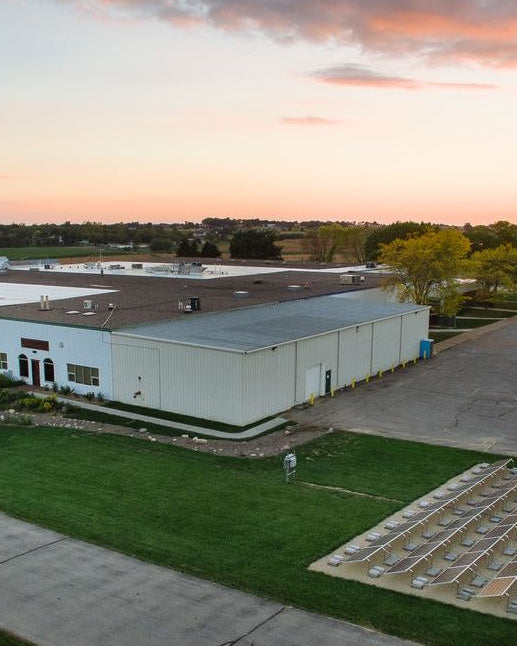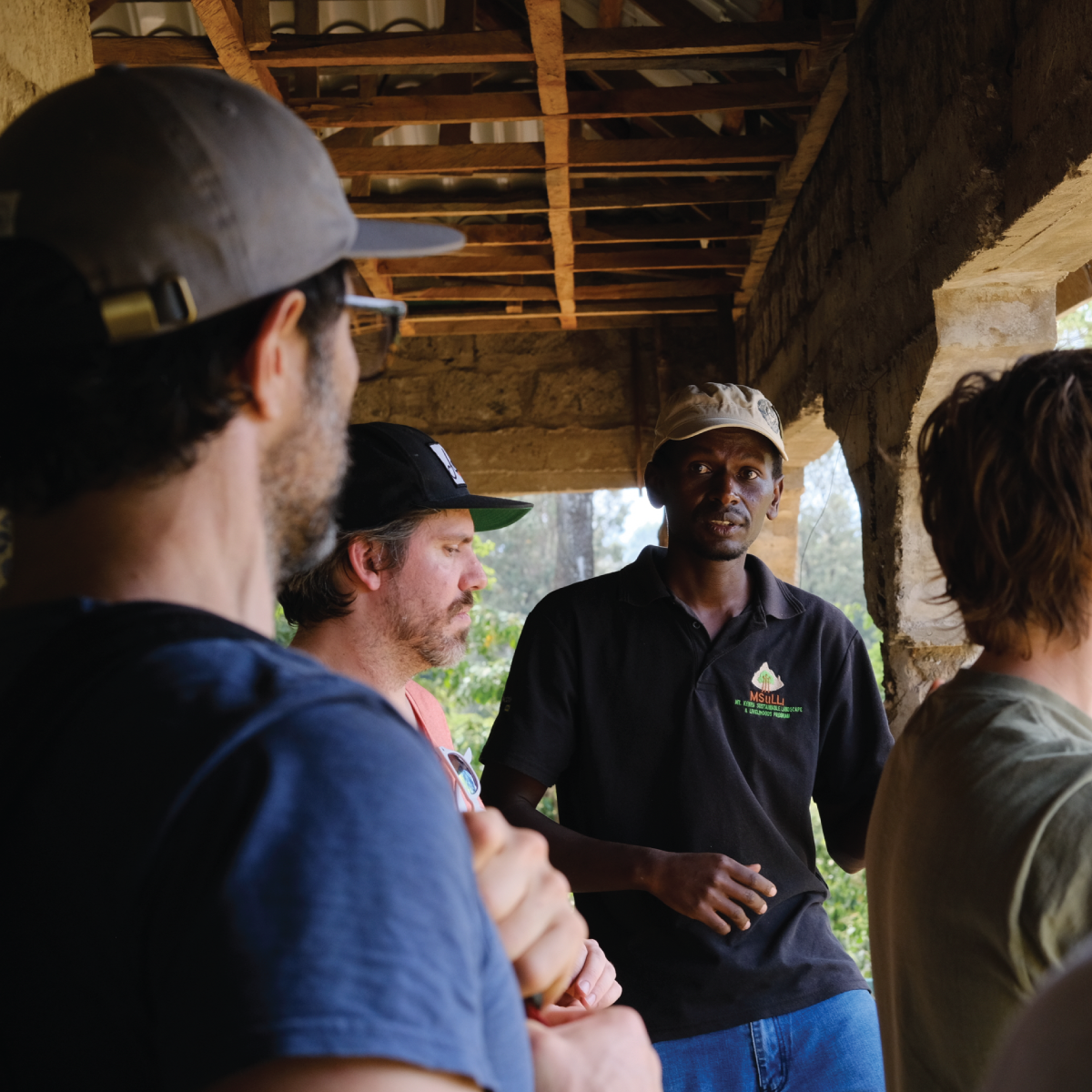Nick Breheny, Director of Coffee
Thank you for joining me today Peter! Let’s start off with your background: can you tell me more about yourself — where you grew up, and how you began working in coffee?
My full name is John Peter Njeru Mbature. I'm from Embu, Kenya, about 150 kilometers north of Nairobi. I grew up on the Kamavindi family farm, which we’ve always called home. My parents cultivated coffee alongside other jobs. As kids, we joined in—harvesting, managing the farm, and eventually helping with processing. Our family washing station was built in 1994, but there have been coffee trees on the land since 1958. Before that, my grandparents delivered cherries to the cooperative society. In 1994, my father decided to leave the co-op and started processing coffee independently.
I went to college and studied finance, but returned home to manage the farm with my sisters. I genuinely love farming. Cultivating coffee made sense because we had relationships with roasters and an assured market. I focused more on coffee, especially after meeting people like Caleb Nicholes and Tim Hill. Selling directly to roasters made it possible for us to continue.

Peter and Gladys Mbature in front of Kamavindi Estate
So you’re now overseeing the Kamavindi Estate. Can you tell me more about the challenges you faced as you took over operations and began running the estate?
My biggest challenge was transparency. Even though we started processing coffee in 1994, we never had a conversation with a buyer until 2013. And this is the case for most farmers in Kenya. In 2013, we met Tim Hill. During his visit to the farm, he asked, "What’s the quality of your coffee?"
I said, "Look at it! The beans are beautiful!" But I didn’t understand that quality is more than appearance. It’s about taste and flavor. Most Kenyan farmers have never had the chance to sit down with a buyer and talk about quality, and that feedback is everything.
Roasters like Wonderstate coming to Kenya and meeting with farmers is still a new idea. Most farmers don’t know the true quality of their coffee, and the lack of information and knowledge flowing from buyers has harmed Kenyan coffee. Kamavindi is open to this conversation: We want to learn what to look for, how to improve. When we work with buyers like Wonderstate, we gain an understanding of what quality means and what the market values.
Kamavindi is not just a farm, it’s an exporter too. What made you take on the challenge of becoming an exporter?
We started a project called Kushikamana—Swahili for “connected”—to help several small estates find direct sales. I trained them on quality, but export was still overseen by various companies.
Then, in 2020 and 2024, regulations changed. Many export licenses were revoked across Kenya. Some exporters never got their licenses back after the reforms. Multinationals that have been operating for 50 years or more were affected by the reforms, too, and these reforms caused a lot of problems for exporting coffee. As a result, farmers had to go back to the auction system, which doesn’t work well for specialty coffee. The auction mixes commodity and specialty coffee together and tries to sell it to the same buyers. It doesn’t support or value quality correctly.
That’s why I started exporting. Once we received our license, we had farmers, who are our friends, who we’d been working with and already had established direct sales relationships. We could now export those coffees directly and connect these farmers with roasters. These are people we care about, people we’ve known for years. We want to engage with farmers in a different way, be transparent, build trust, and build new relationships.
What is fundamentally broken in the Kenyan coffee supply chain that keeps farmers from connecting with roasters? Or farmers from accessing more value for their coffee?
The biggest issue is the supply chain. People are told: if you’re a farmer, stay in your lane. If you’re an exporter, just export. But the exporter buys the coffee, owns it, and sells it as their product, and in the process doesn’t highlight the actual farmer. The farmer never sees the final quality results or the final price their coffee is sold for. That lack of transparency is what keeps the system broken.
We want roasters to see both farmgate and FOB (freight on board) prices. They can communicate directly with the farmers they are purchasing from and discuss quality and pricing expectations.
When roasters say Kenyan coffee is too expensive, they’re not wrong, but the farmer doesn’t see that high price. Many exporters keep prices hidden to protect their profits. At Kamavindi, farmers who sell to coffee roasters like Wonderstate are receiving around double the average price this year. Now everyone wants to return to coffee farming because of this price. And still, we know there’s room to grow. We need more roasters and exporters paying fairly. The price should always match the quality, not be inflated by inefficiencies in the system.
And as you’ve become an exporter, what are the challenges there, and what are the greatest successes?
The hardest part is talking to a farmer, your friend, and saying, "I don’t have a market for your coffee." If it’s not specialty, we can’t export it. These are people you really care about. It’s very, very difficult to tell a farmer you can’t buy their coffee.
Additionally, financing is also a challenge. Once we make a contract with the roaster and farmer, we have to pay the farmer quickly, but shipping delays mean we wait to get paid ourselves. So, financing continues to be a huge challenge.
The biggest win? Starting the exporting business is a new income stream that supports the Kamavindi Estate. This new income stream has given me space to experiment on the farm! We also used this income to continue to build our cupping lab and training center. We don’t want to charge farmers for access to knowledge.
I’ve always wanted to do something in my generation. My grandfather planted coffee under colonial restrictions, back when farmers had to be Christians, and couldn’t plant many coffee trees. My parents built the washing station, and my father fought for direct sales, speaking with government officials about how to grow Kenyan coffee on a global scale. Now, through this export company and training lab, we’re finishing what they started. This is my motivation for everything I do: to make a real change for Kenyan coffee.

Can you tell me more about the Kamavindi Training Center?
We have rooms for training sessions and other rooms for cupping. During the training, farmers are learning about agronomy, marketing, and quality. And during the cuppings, they taste their own coffee, and other farmers’ coffees as well! A lot of times during cuppings, they choose another farmer’s coffee as their favorite coffee — the coffee with the best quality and flavor — and that’s a powerful experience! It helps them understand how flavor impacts price, which is something most farmers have never experienced!
We’ve talked a lot about small farmers and the estates you’re working with, but can you tell me more about what challenges these farmers face?
Land ownership is an issue. Coffee is often owned by older men who aren’t open to change. The average age of a Kenyan coffee farmer is around 64. Younger farmers don’t have the decision-making power to make changes at their farms if their parents still oversee all of the sales.
Of course, climate change is another big issue. This past year, the harvest came earlier, and the harvest is going to be earlier this year too! This changes how we must manage the trees, which requires knowledge and experience, like when to apply potassium and nitrogen, and how to deal with the pests. All of this is expensive, and producing coffee continues to become more expensive from the effects of climate change.
Then there’s government regulation, which is also unpredictable. They can change the rules overnight, at any time. They did this in 2020 and 2024, and all of the exporters lost their licenses and had to reapply. This massively slowed down the export of coffee and caused a ton of problems for farmers, who got paid much later than they should have. If multinationals, who have access to all the knowledge and resources, lost their licenses, what chance do smallholders and small exporters like Kamavindi have?

Let’s move on to the positives. What gives you hope for the future of Kenyan coffee?
I grow Gesha and SL varieties. As you know, Gesha is great, but in my opinion the SL varieties have even more potential. It’s Kenya’s variety: our identity.
Other new varieties have gained so much recognition, but SL28 is unique to Kenya. This year we had projects focusing on selecting only SL28 and SL34 varieties from farms and cooperatives, and the feedback from roasters has been positive. I believe this is part of the hope for the future!
I also see hope in young farmers who are learning to respond to the demands of the market. They’re growing SL, Sidra, and Ethiopian varieties like 74158, all of which have established quality that’s recognized globally. These young people are online; they text with roasters, and can see what is popular on social media. They’re not beholden to the old ways of doing things, but want to produce better coffee.
It sounds like there’s a lot of challenges to working with coffee in Kenya. How do you manage to stay motivated despite the hurdles?
laughs That’s a good question. Coffee keeps you engaged. There’s always a challenge. Yes, there are regulations and climate issues, but there are also wins! It’s like having children: you see them grow. It’s like this with coffee, too! You need to nurture the trees at the right time with fertilizers, work to prevent diseases and pests, but then the trees flower, and the cherries form and ripen, and then you pick the cherries and process them. Once the harvest is over, you cup the coffee and realize the quality is good, and this makes all the challenges worth it.
And most of all, knowing that when we do it right and create good quality, buyers like Wonderstate will reward us. That gives us confidence and motivation, even on the days that are hard and when we feel down. We know someone is out there who cares about our work.
What would you say to the people out there drinking Kamavindi Coffee? Either the coffee you produce, or the farmers you’re exporting on behalf of?
Thank you.
Without you, this farm couldn’t survive. Coffee feeds people. In Embu, coffee is the biggest employer. Every estate that employs workers relies on buyers to pay good prices in order to keep the establishment alive. So you’re not just supporting our farm, but many families in Kenya. It’s humbling to know our coffee is being enjoyed around the world. Our promise is to keep producing great coffee for you. Some seasons will be harder, but we will always come back stronger.
Try Peter's latest: Kenya Kamavindi Estate
Read more
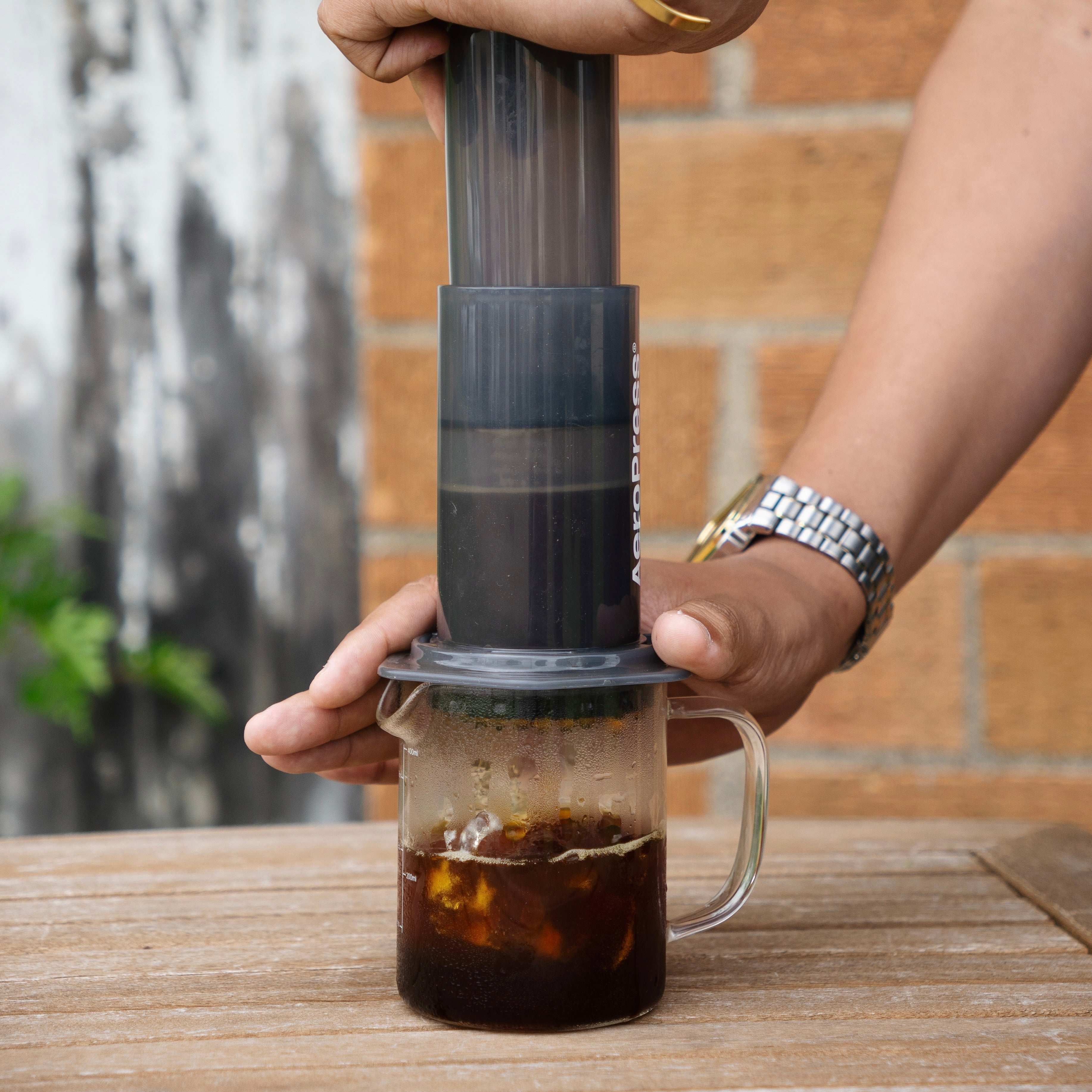
Designed for speed without sacrificing clarity, this two-minute method delivers a crisp, vibrant cup that highlights the lively notes in your favorite coffee. No fancy gear, no extended wait—just ...
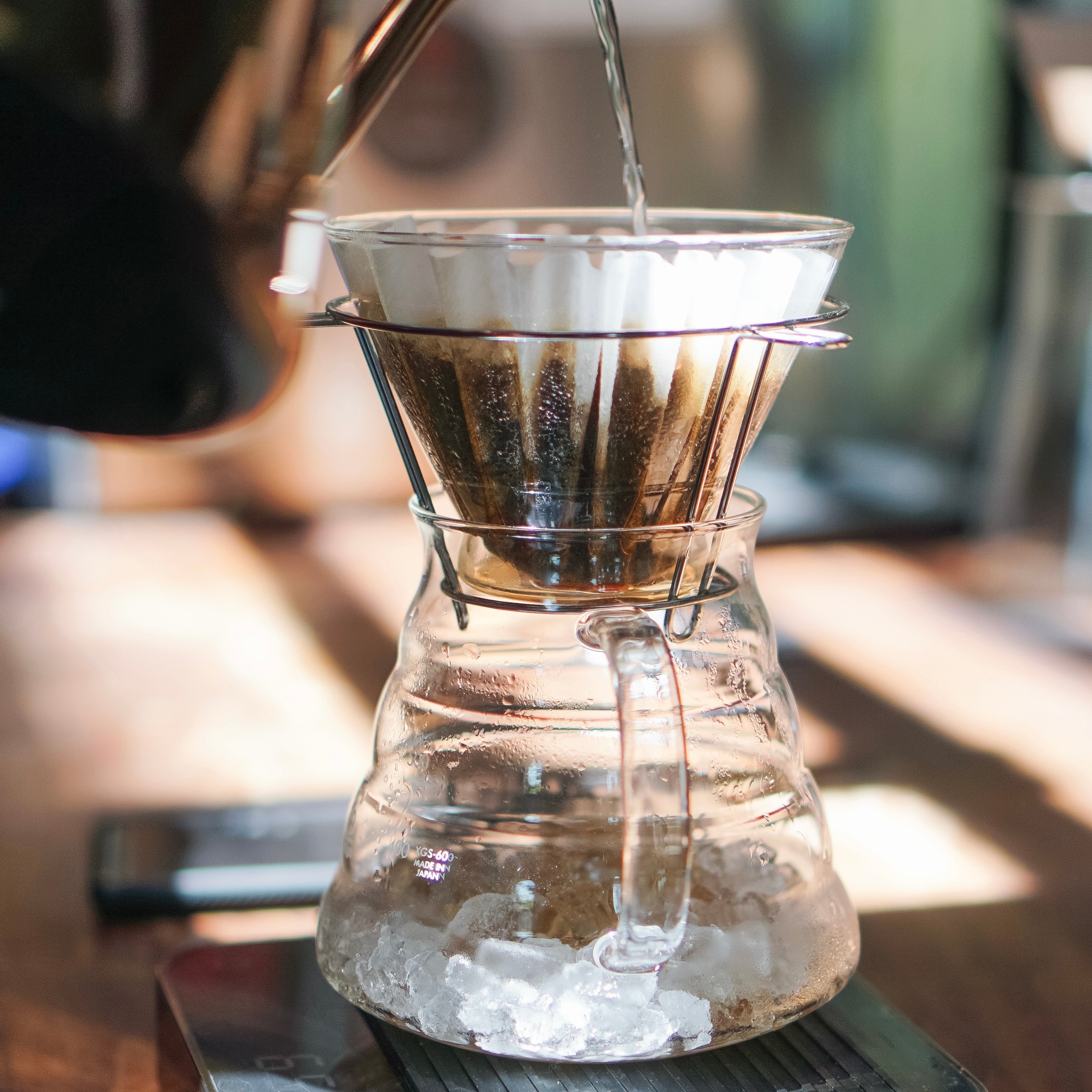
Flash brewing is a method in which you brew hot coffee directly over ice, instead of chilling hot coffee after brewing. This brew results in an aromatic and crisp cup, thanks to the effects of ‘sh...

